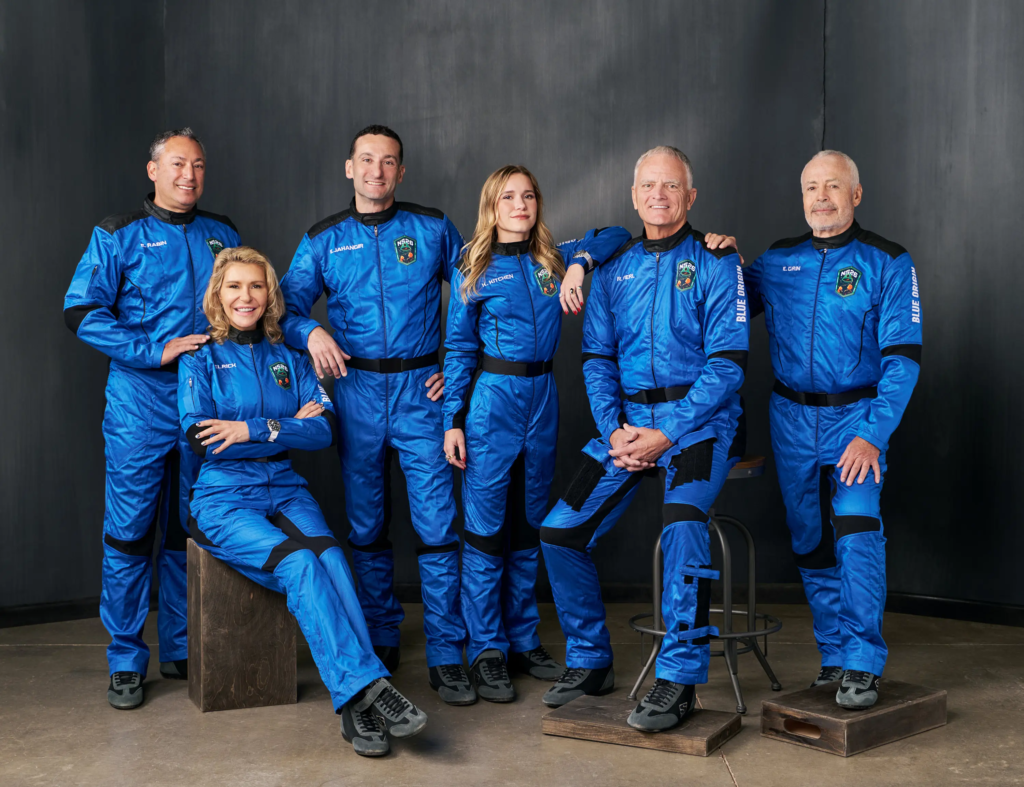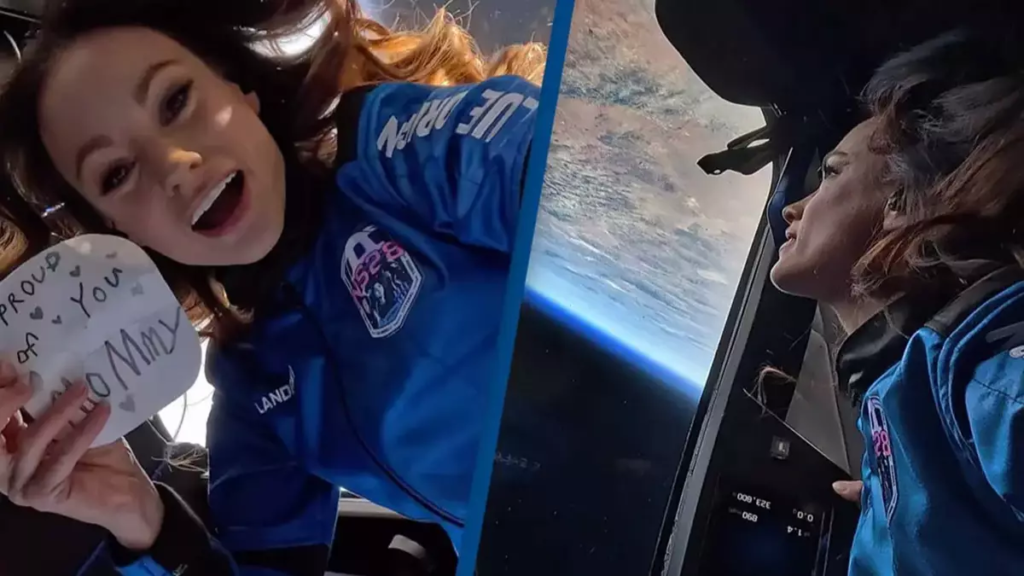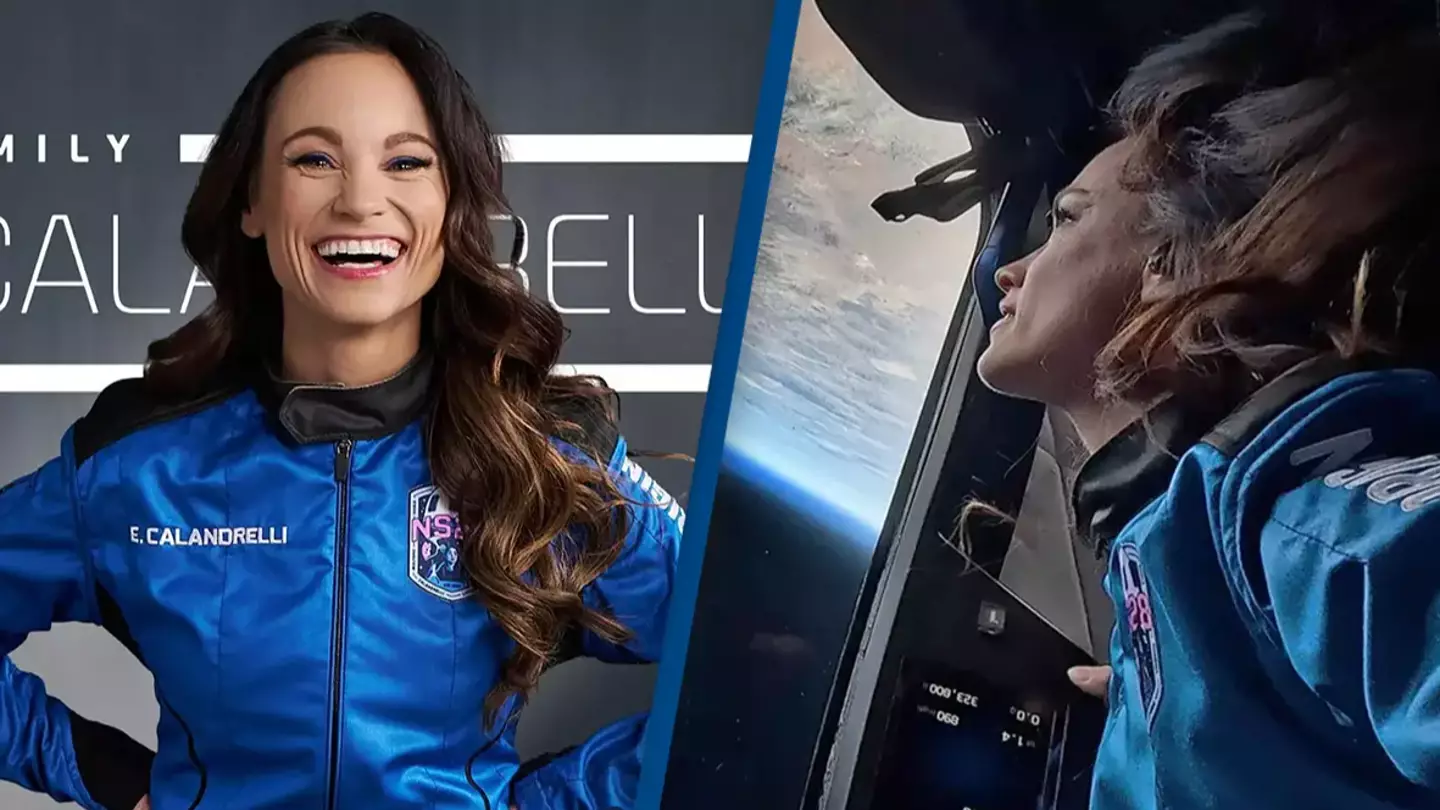Blue Origin’s recent NS-28 mission was supposed to be a triumphant moment, particularly for Emily Calandrelli, an MIT engineer, science communicator, and TV host who marked history by becoming the 100th woman to fly into space.
Her emotional video capturing her first awe-inspiring view of Earth highlighted not only her personal achievement but also the broader progress women are making in the field of space exploration. Yet, this historic and deeply personal experience was marred by a flood of online harassment.
The spaceflight journey of Emily Calandrelli, a milestone for women in science, turned into a stark reminder of online misogyny’s reach.
The torrent of misogynistic comments targeting Calandrelli’s appearance and expressions ultimately forced Blue Origin to take down the celebratory video, sparking a broader conversation about the challenges faced by women in STEM fields.
An Inspirational Journey
Emily Calandrelli’s journey aboard Blue Origin’s New Shepard spacecraft was nothing short of groundbreaking. The flight on November 22 was part of Blue Origin’s NS-28 mission, and it represented a dream come true for Calandrelli, who has spent her career inspiring the next generation through her work in science communication.
Known for her roles on educational programs like Xploration Outer Space, Calandrelli has long been an advocate for space exploration, particularly in making complex scientific concepts accessible to young audiences.
Read : Delhi to San Francisco in 40 Minutes: Now Possible with SpaceX Starship
In the video, which was shared widely across social media platforms, Calandrelli’s sheer amazement and wonder were evident. She described the moment she saw Earth from space, comparing the profound emotion to the joy she felt when seeing her children for the first time.
“There was so much space,” she exclaimed, marveling at the vastness beyond our planet. Her raw, emotional reaction was meant to capture the beauty and profundity of the human experience in space—a perspective that few people have the opportunity to witness firsthand.
The Backlash and Harassment
Unfortunately, what should have been a moment of universal celebration quickly devolved into a disturbing display of online misogyny. The video attracted an onslaught of offensive, objectifying, and sexualized comments.
Trolls mocked Calandrelli’s expressions of awe, with some making crude remarks about her appearance and others trivializing her emotions.
Jeff Bezos' Blue Origin forced to delete video of engineer Emily Calandrelli in space after trolls started making s*xist comments about her.
— MAGA Elvis 🇺🇸 (@BenStanton77) November 27, 2024
Calandrelli became the 100th woman in space and says she was brought to tears by trolls. 🤣
pic.twitter.com/rMeJkzufrj
Comments such as, “Would you consider yourself the hottest woman to ever go to space?” and “Why is she moaning? I cannot unhear it,” reflect a deeper societal issue where women’s achievements are often overshadowed by their physical appearance or subjected to inappropriate scrutiny.
This is not an isolated incident. Women in STEM fields frequently face disproportionate levels of online harassment and discrimination.
For many female scientists and engineers, especially those in the public eye, social media can become a double-edged sword—an essential tool for outreach and communication, but also a platform where they are exposed to relentless trolling and misogyny.
Calandrelli’s experience is a painful reminder of the work that still needs to be done to create a truly inclusive and respectful environment in these fields.
Emily Calandrelli’s Response
Despite the vitriol, Emily Calandrelli’s response exemplified grace and resilience. Addressing the harassment on her Instagram account, she acknowledged the pain it caused but refused to let it diminish her accomplishment.
“This all happened as I was flying home after experiencing the most perfect, wonderful dream-achieving experience of my life,” she wrote. “Instead of being on cloud nine, I’m crying in my seat staring out the window. Because of course, this happened. Of course, I should have expected this.”
Yet, Calandrelli’s message was one of defiance and hope. She made it clear that she would not let the “small men on the internet” rob her of the joy she felt. “I feel experiences in my soul.

It’s a trait I got from my father. We feel every emotion deeply, and what a beautiful way that is to experience life. This joy is tattooed on my heart,” she wrote. Her words resonate beyond her personal experience, serving as a call to action for a more empathetic and respectful digital culture.
Calandrelli also received an outpouring of support from fellow astronauts, scientists, and fans. Many praised her achievements and condemned the harassment. This support is a testament to the growing recognition of the challenges women face in male-dominated fields and the need for solidarity in addressing these issues.
The Broader Conversation: Misogyny in STEM
The harassment faced by Emily Calandrelli is not an isolated incident; it reflects broader patterns of misogyny that persist in STEM fields and beyond.
Women in science, technology, engineering, and mathematics often face higher barriers to entry, and those who do break through are frequently subjected to scrutiny and hostility that their male counterparts do not experience.
From gender bias in hiring and promotions to the harassment faced by women who speak out in public forums, these challenges are deeply ingrained.
Social media has amplified these issues, providing a platform where anonymity often emboldens the worst behavior. For women like Calandrelli, who use their platforms to inspire and educate, the risk of harassment is a constant reality.
This creates a chilling effect, deterring many women from pursuing public-facing roles or sharing their experiences online. As a result, the voices of women in STEM are often marginalized, and the field as a whole suffers from a lack of diverse perspectives.
The Role of Companies and Platforms
The decision by Blue Origin to remove the video highlights the difficult balance that companies must strike between celebrating their achievements and protecting their employees or partners from harm.
While some may argue that deleting the video gives power to the trolls, it also reflects a recognition of the real and harmful impact that online harassment can have. Companies in the space industry—and beyond—must take proactive steps to address these issues, including implementing stronger moderation policies and providing support for those targeted by harassment.

Moreover, social media platforms have a responsibility to create safer environments. While some progress has been made in addressing online abuse, much more needs to be done. Enhanced reporting mechanisms, stricter enforcement of community guidelines, and better support for victims are essential steps in this process.
Emily Calandrelli’s experience is a stark reminder of both the progress that has been made and the challenges that remain. Her journey to space is an inspiration, demonstrating what is possible when barriers are broken down.
Yet, the backlash she faced underscores the need for continued efforts to create a more inclusive and respectful environment—both online and in the real world.
The outpouring of support for Calandrelli also offers hope. It shows that there is a growing recognition of these issues and a willingness to stand in solidarity with those who face harassment. As more women enter STEM fields and take on public roles, their voices will be crucial in shaping a more equitable future.
For Calandrelli, the experience in space was life-changing, a dream realized. Her resilience in the face of adversity is a powerful reminder that while the journey toward equality may be fraught with challenges, it is one worth pursuing.

